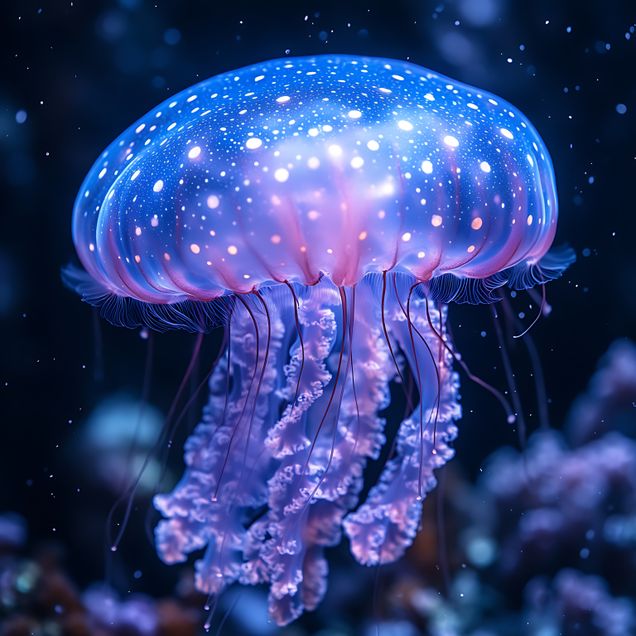Brian DePasquale receives 2025 Scialog NCE award for neurobiology and changing ecosystems research
Brian DePasquale, assistant professor of biomedical engineering and Hariri Institute faculty fellow at Boston University, is among the distinguished researchers selected for the inaugural Scialog: Neurobiology and Changing Ecosystems (NCE) award. This Scialog initiative is a three-year initiative that aims to spark new science exploring neurobiological response to rapid and extensive human-caused environmental changes. This initiative is sponsored by Research Corporation for Science Advancement, the Paul G. Allen Frontiers Group, the Paul G. Allen Family Foundation, the Frederick Gardner Cottrell Foundation, and The Kavli Foundation.

DePasquale received the award for his project titled “A community AI approach to identify and predict behavioral motifs across marine life” as part of a multidisciplinary team of early career scientists that includes Matthew Lovett-Barron, assistant professor, neurobiology, UC San Diego; and Brandon (Brady) Weissbourd, Assistant Professor of Biology; Doherty Professorship in Ocean Utilization; Investigator, The Picower Institute for Learning and Memory, MIT.
The project addresses the urgent threat of climate change to marine ecosystems by tackling a key challenge: predicting how diverse marine species will respond to environmental stress. The vast range of species complicates this effort, demanding new approaches to understand their responses.
Imagine unlocking the secret language of marine life as our oceans heat up. The project seeks to do just that, drawing inspiration from how artificial intelligence (AI) language models extract semantic meaning across different languages. By combining species-specific behavioral measurements with species-agnostic AI systems, the team aims to identify common patterns of behavior when diverse marine organisms are exposed to fluctuating temperatures. The team will also apply generative AI to predict behavioral changes as temperatures rise in animals not measured.

“By uncovering shared behavioral patterns across diverse species, our work aims to move beyond isolated studies to see the bigger picture of how life adapts and evolves under stress,” says DePasquale. “With this approach, we will establish a common reference framework for behavioral measurements that transcends species boundaries. Critically, we aim to make this analytical and predictive framework available to the community, to allow for generalization to more species and ecosystems.”
The project team brings a diverse range of expertise to this research challenge, combining deep knowledge of species-specific behavior with advanced computational skills. DePasquale is an expert in computational neuroscience and application of machine learning tools to neuroscience data. Weissbourd is an expert in adapting cutting edge behavioral, physiology and genetic tools to jellyfish. Lovett-Barron has expertise in similar tools for behaving fish, as well as applying VR and neurophotonics technologies to aquatic animals.
In total, seventeen researchers from the United States and Canada received funding for six collaborative projects in the first year of the Scialog: Neurobiology and Changing Ecosystems. Each of the 18 awards is for $60,000 in direct costs.
“Besides climate, other factors such as noise, light, toxins, and microplastics have an impact on organisms’ health, their ability to feed, to reproduce, and to migrate,” said RCSA Senior Program Director Andrew Feig, who leads the initiative. “Many of the changes to our natural and built environments are occurring at rates faster than traditional evolution and natural selection can respond, so it’s important to understand at a fundamental level how neural pathways are adapting to these challenges.”
This Scialog series seeks to cultivate a vibrant community of about 50 early-career scientists with diverse scientific expertise, perspectives and approaches from fields such as cell biology, genetics, neurophysiology, climate science, environmental chemistry, physical modeling, and toxicology. By fostering rich interactions among cross-disciplinary researchers who might not typically meet or collaborate, the initiative aims to spark innovative and novel ideas for transformative research.
Scialog is short for “science + dialog.” Created in 2010 by RCSA, the Scialog program aims to accelerate breakthroughs by building a creative network of scientists that crosses disciplinary silos, and by stimulating intensive conversation around a scientific theme of global importance.
Learn more in the RCSA press release.
Photo Credits: Images used under license from Nikola – stock.adobe.com; and SUVO – stock.adobe.com
